Science
Science provides an empirical way of answering interesting and important questions about the biological, physical and technological world. The knowledge it produces has proved to be a reliable basis for action in our personal, social and economic lives. Science is a dynamic, collaborative and creative human endeavour arising from our desire to make sense of our world through exploring the unknown, investigating universal mysteries, making predictions and solving problems. Science aims to understand a large number of observations in terms of a much smaller number of broad principles. Science knowledge is contestable and is revised, refined and extended as new evidence arises.
The Australian Curriculum: Science provides opportunities for students to develop an understanding of important science concepts and processes, the practices used to develop scientific knowledge, of science’s contribution to our culture and society, and its applications in our lives. The curriculum supports students to develop the scientific knowledge, understandings and skills to make informed decisions about local, national and global issues and to participate, if they so wish, in science-related careers.
In addition to its practical applications, learning science is a valuable pursuit in its own right. Students can experience the joy of scientific discovery and nurture their natural curiosity about the world around them. In doing this, they develop critical and creative thinking skills and challenge themselves to identify questions and draw evidence-based conclusions using scientific methods. The wider benefits of this ‘scientific literacy’ are well established, including giving students the capability to investigate the natural world and changes made to it through human activity.
The ability to think and act in scientific ways helps build the broader suite of capabilities in students as confident, self-motivated and active members of our society.
- Plus Plan
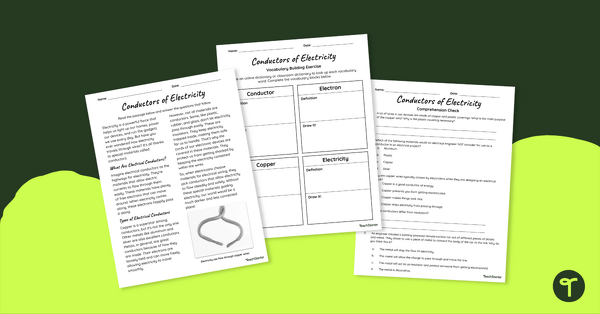
Conductors of Electricity Reading Comprehension Worksheet
Challenge your students to show what they know about electrical conductors with this reading comprehension worksheet.
- Plus Plan
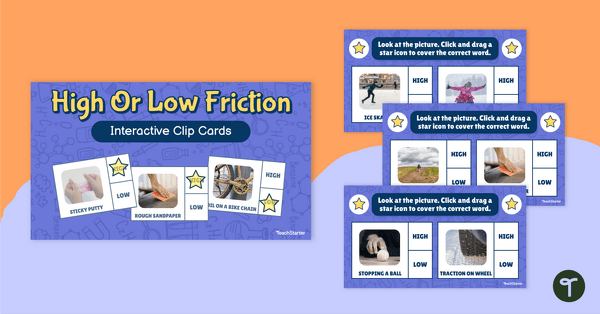
High or Low Friction? Interactive Peg Cards
Explore high and low friction examples with your students using this set of 24 digital peg cards.
- Plus Plan
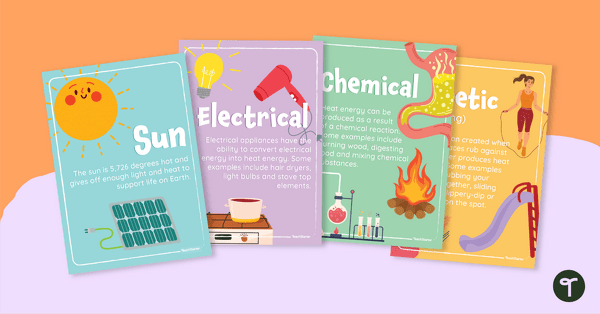
Heat Sources Poster Set
Display these heat sources posters during your heat energy science unit.
- Plus Plan
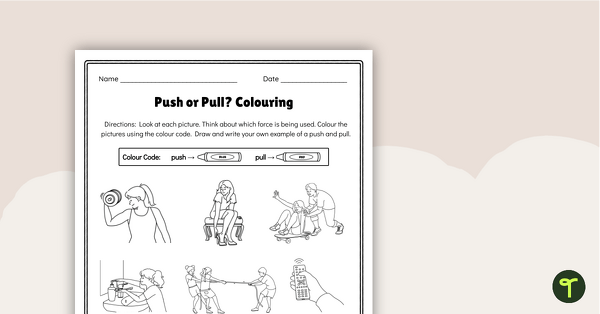
Push or Pull? Colouring Worksheet
Use this push and pull colour-coding worksheet when exploring forces and motion with your early years students.
- Plus Plan
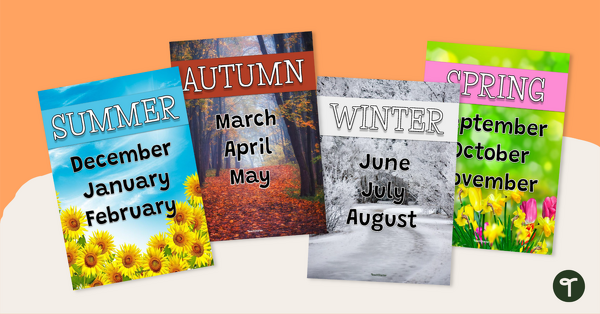
Seasons and Months Posters
Use these four months and the seasons posters to help your students to learn the seasons and their corresponding months.
- Plus Plan
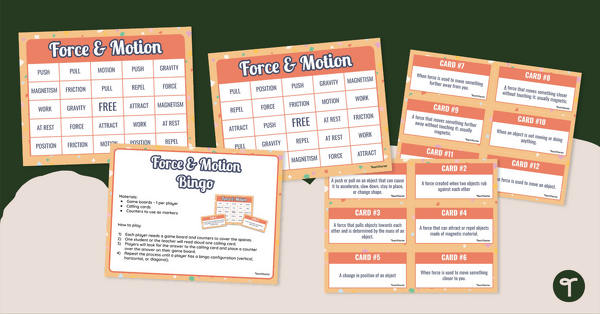
Force and Motion Bingo
Play a forces and motion game with your students to reinforce key subject-specific vocabulary.
- Plus Plan
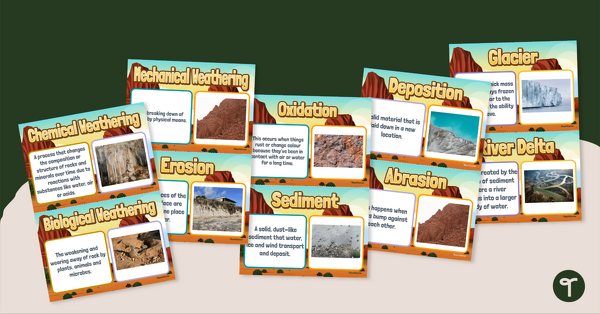
Weathering, Erosion and Deposition Vocabulary Posters
Display this set of science vocabulary posters in your classroom when teaching about weathering, erosion and deposition.
- Plus Plan
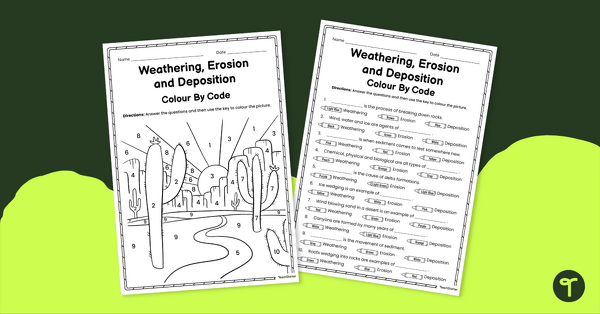
Weathering, Erosion and Deposition Colour By Code Worksheet
Guide your students to differentiate between examples of weathering, erosion and deposition with this colour-by-code science worksheet.
- Plus Plan
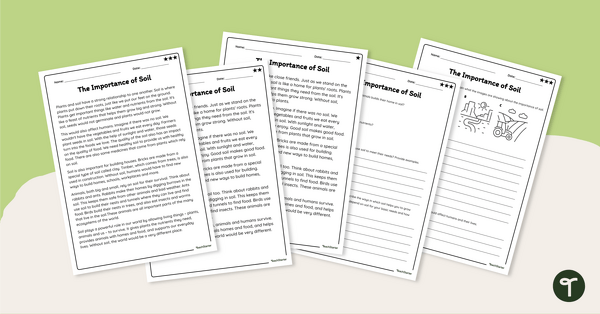
The Importance of Soil – Comprehension Worksheets
Teach your students about the importance of soil to plants, animals and humans with this differentiated reading comprehension passage with accompanying questions.
- Plus Plan
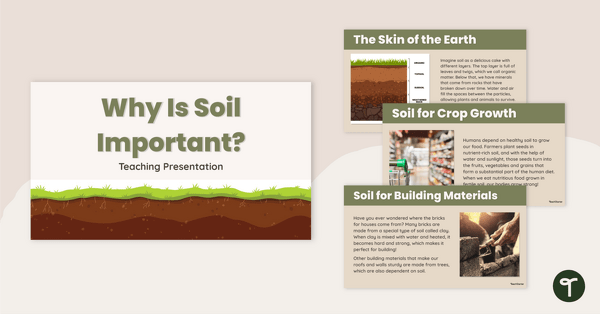
Why Is Soil Important? Teaching Slides
Explain to your students how living things depend on soil with this informative teaching presentation perfect for primary school science lessons.
- Free Plan
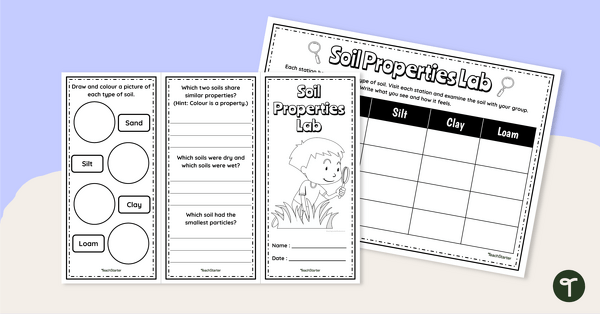
Soil Properties Lab – Brochure Template
Investigate different soil types and their properties with this hands-on activity.
- Plus Plan
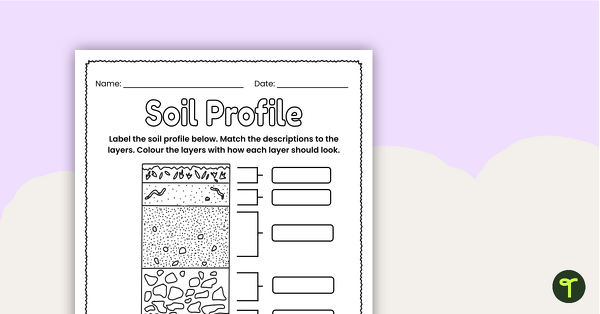
Label a Soil Profile – Worksheet
Identify and label different layers with this soil profile worksheet.
- Free Plan
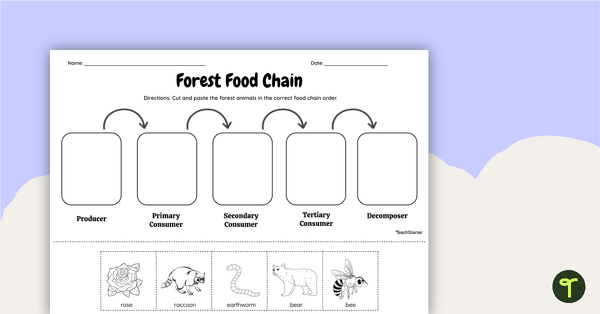
Forest Food Chain – Cut and Paste Worksheet
Create a forest food chain to show how energy flows between organisms with this cut-and-paste worksheet.
- Plus Plan
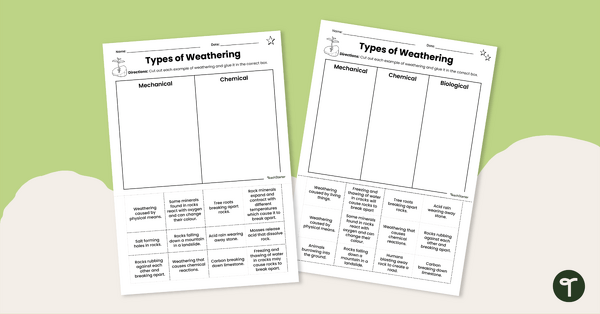
Types of Weathering – Cut and Paste Worksheet
Use this cut-and-paste worksheet when classifying examples that show mechanical, chemical or biological weathering.
- Plus Plan
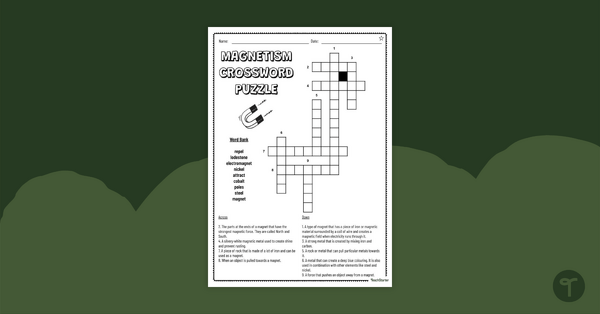
Magnetism Crossword Puzzle
Use this magnetism crossword puzzle to reinforce the scientific vocabulary related this non-contact force.
- Plus Plan
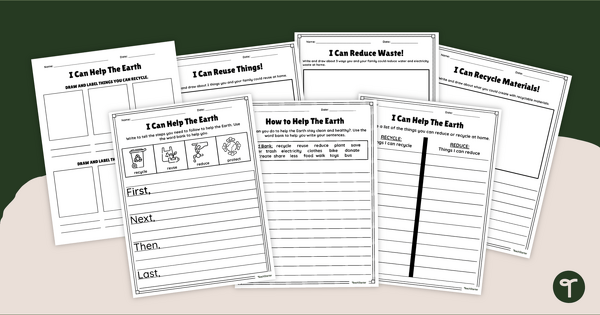
Write About It! Recycling Writing Prompt Worksheets
Differentiate writing instruction in primary grades with informational writing prompts about recycling and conservation.
- Free Plan
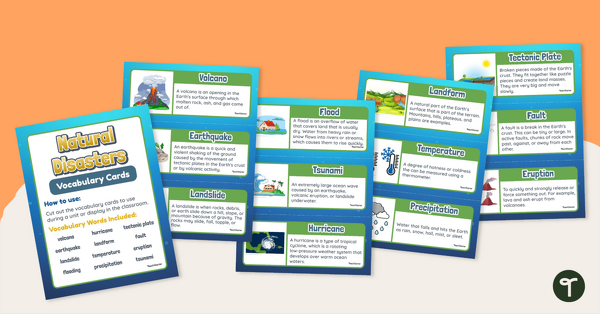
Natural Disasters - Illustrated Vocabulary Display
Reinforce science vocabulary in your classroom with this set of illustrated and annotated natural disaster word wall cards.
- Plus Plan
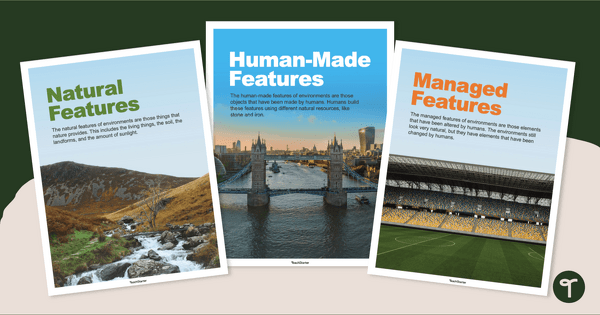
Natural, Managed, and Human-Made Features Posters
Identify the natural, manmade, and managed features of environments with printable anchor charts.
- Free Plan
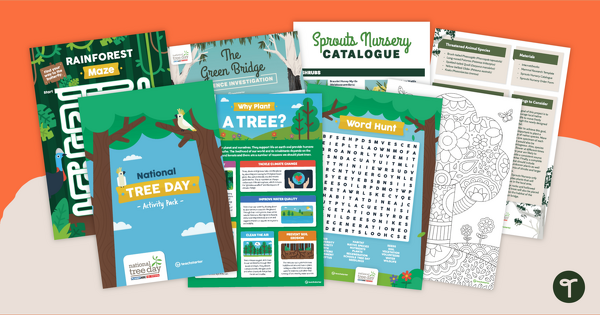
National Tree Day Activity Pack
Celebrating National Tree Day with a pack of exciting activities!
- Plus Plan
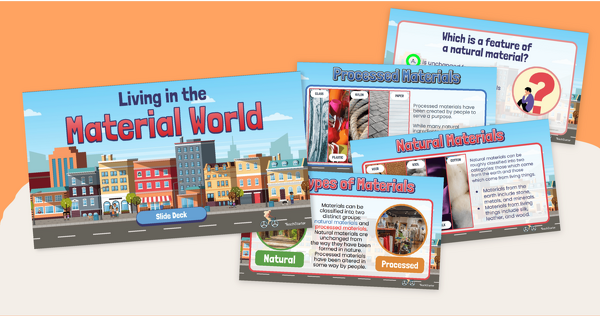
Material World PowerPoint - Processed and Natural Materials
Discover the difference between processed and natural materials with an instructional slide show.
- Plus Plan
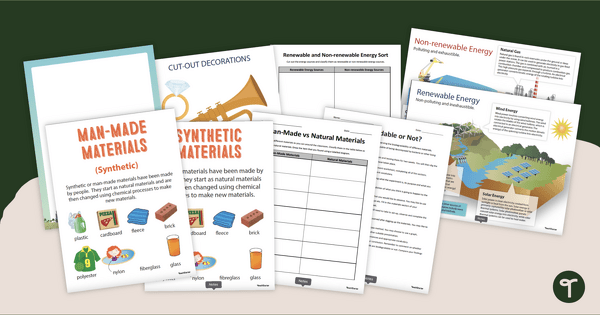
Material World Resource Pack
Learn about natural and manmade materials with a printable resource pack.
- Plus Plan
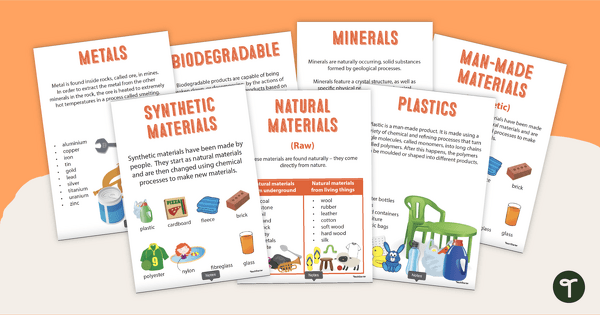
Types of Materials - Printable Anchor Charts
Introduce your students to the different types of materials with a pack of printable anchor charts.
- Free Plan
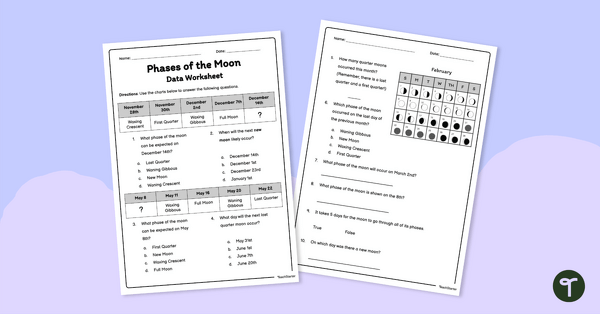
Phases of the Moon – Data Worksheet
- Plus Plan
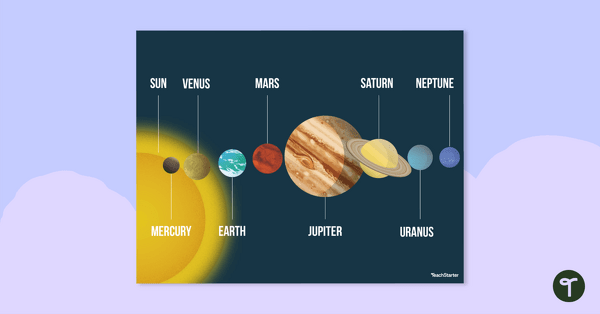
The Solar System - Planets in Order
Show the planets in order with this beautifully designed printable science poster.
- Plus Plan
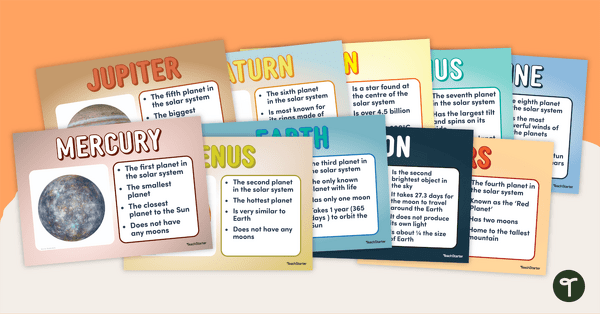
Individual Planet Posters
Use this set of posters with your space unit to teach about the individual planets.
- Free Plan
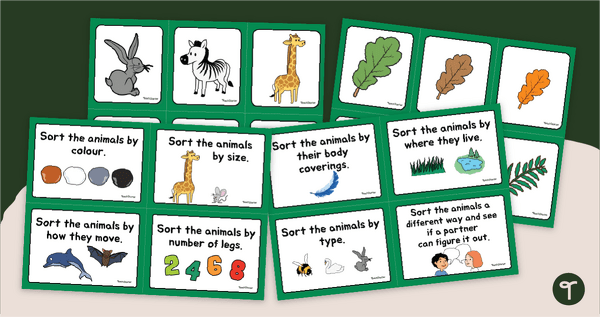
Plant and Animal Sort – Task Cards
Sort plants and animals based on characteristics with a set of task cards and picture cards.
- Plus Plan
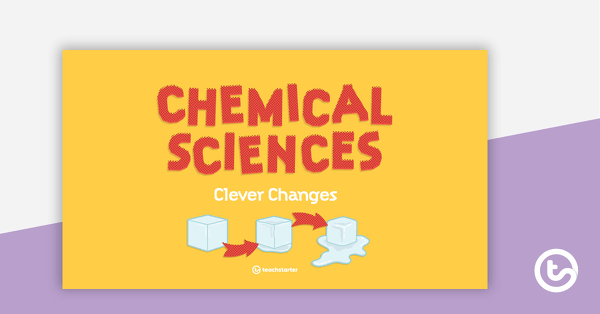
Chemical Sciences: Clever Changes – Teaching Presentation
A 56-slide teaching presentation introducing facts about different chemical changes to different materials.
- Plus Plan
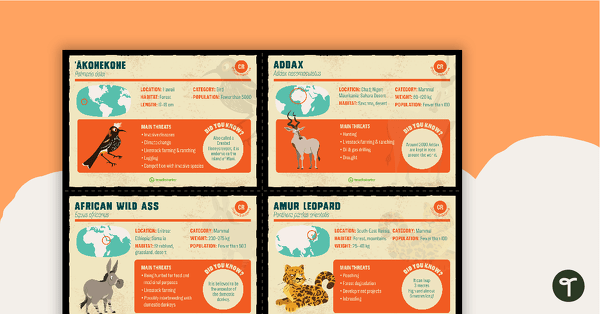
Critically Endangered Species Task Cards
Explore 64 species and subspecies that are on the critically endangered list with this set of fact cards.
- Free Plan
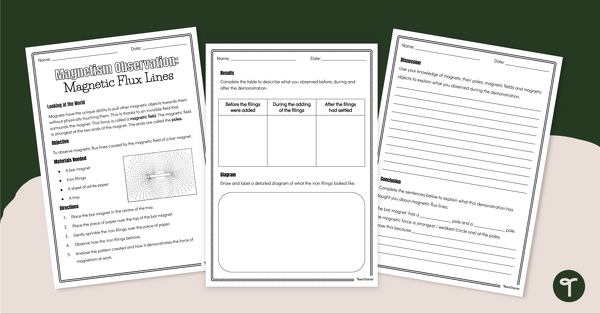
Magnet Experiment – Magnetic Flux Lines
Use this engaging magnet experiment when teaching your students about magnetic fields and their effect on magnetic objects.
- Plus Plan
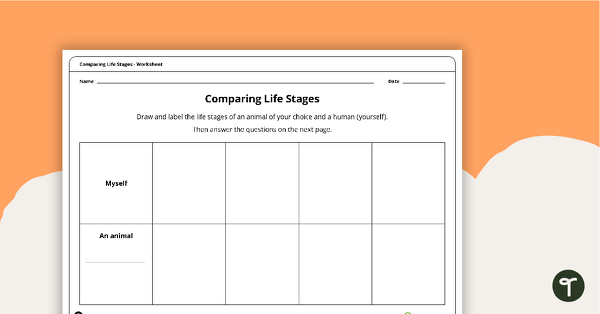
Comparing Life Stages Worksheet
An open-ended task for students to demonstrate their understanding of how animals grow and change.
- Plus Plan
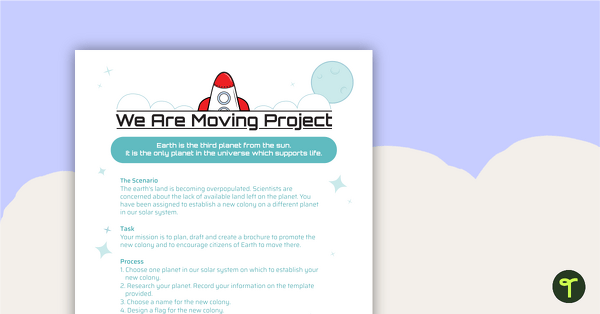
We Are Moving Project
An Earth and Space project that develops knowledge and understanding of scientific concepts, research skills and writing skills.
- Plus Plan
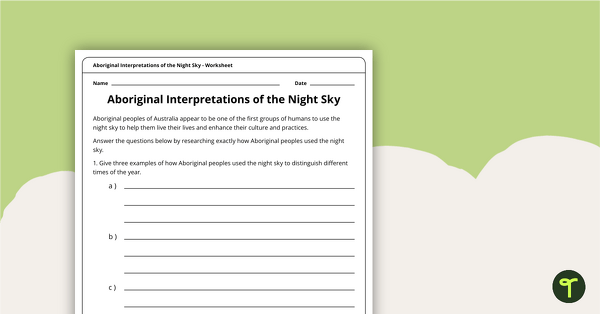
Aboriginal Interpretations of the Night Sky Worksheet
A worksheet that explores how Aboriginal peoples interpreted the night sky.